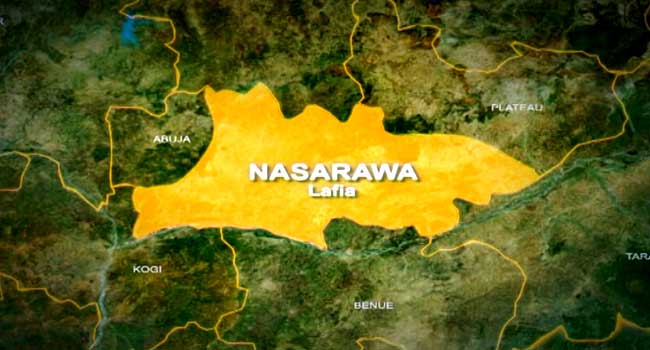In Africa, there are hardly any festivals without masquerades because masquerades epitomise the people’s cosmology, their relationship with the spiritual world, and their sense of being. They express a people’s identity and pride. It is, therefore, nearly impossible to divest festivals from masquerades. Underlying this understanding is the truism that festivals and masquerades embody the totality of a people that established their relationship with one another as members of a community, their relationship with God the creator, and their external linkage with their ancestors. In this way, an unbroken circle of interconnectivity between the living and the dead is established in a complex pattern.
The sense in which this inter-relationship is constructed and sustained defines the individual belief system. As such, both Christianity and Islam are subordinated to this arrangement. This explains why every community member partakes in every community festival, because it provides an opportunity to express oneself. But importantly, festivals also constitute important historical signposts with masquerades serving as the expressive historical ‘objects’ that concretely recreate the past in the present. Altogether, they represent a celebration of self and being of community tragedy and hopes, emotions and aspirations. This piece dwells on the Amiri and Ogiri ritual festivals of Agwatashi as Alago representational ‘slice of life’.
Agwatashi is a small, ancient, but fast-growing town in the Obi local government area of Nasarawa State, Nigeria. It is a chiefdom whose chief, Osoho, is of a third-class status. The late monarch, Musa Aliyu Ofoku Ogashuwa, was installed in 2003 as the first beneficiary of this third-class creation. Guided by his vision, wisdom, and a strong commitment to redraw the cultural map of Agwatashi, he decided to revive the long-dormant festivals of Amiri and Ogiri in 2004 in recognition of their fundamental roles as veritable signposts for the redefining of Agwatashi’s identity.
Agwatashi is rich in art and culture, both performance and ritualistic. These attributes manifest in the community’s masquerades, dances, music, songs, etc. The festivals and masquerades embody the history, memories and emotions of the community and its people. This explains the wide array of masquerades and festivals in the land. The relationship that subsists between the ritualistic essence of the festivals and masquerades on the one hand, and the people on the other, resides in their conciliatory significance to both the living and the spiritual realm.
Amiri and Ogiri festivals are annual events celebrated one after the other after an interval of two to three months, but Amiri often comes before Ogiri. Together, both festivals remain the cardinal festivals celebrated in Agwatashi. Because of their spiritual and secular significance to the well-being of Agwatashi as a community and its people, their observance becomes irrevocable.
Ogiri is an annual war festival celebrated between December and January every year, immediately preceding harvest. It is also an occasion of thanksgiving to the gods and the spirits of the ancestors. The spiritual essence of Ogiri is in tandem with the Amiri festival. However, unlike Amiri, which is celebrated for seven days, Ogiri lasts for only one day. It is generally a brief occasion where the youths exhibit their physical prowess; as such, it is largely a youth celebration of hope and accomplishments.
Ogiri festival is remarkable because of the kaleidoscopic array of masquerades that appear on the celebration day. Ogiri festival day can therefore best be described as a day of the masquerades. These masquerades are colourful, brisk, agile and energetic in their dancing and performance. In fact, they constitute the festival’s main attraction, where audiences identify with their beloved masquerades. On this occasion of the festival, spirits of the ancestors come in the form of these masquerades, which include akaka, who is the head masquerade, obagu, okumare, inariko, agbasa, iwagu, ikashi, okwe and ayi-ka-suku, among many others.
Osava Ekwu is the igabo responsible for the general organisation of the Ogiri festival. He is selected among male royalists. The selection process of the Osava is not open to manipulation because it is done through the miraculous appearance of a crab in the house of the person to be so anointed. In fact, the position is not open to bidding either. This ordination is beyond the powers of humans, so there is always the casting of eba or divination rites to confirm the selection of the Osava Ekwu. The practice of the mysterious appearance of the crab has been as old as the origin of the Ogiri festival. More often than not, the person so anointed might never have indicated interest in the position at all.
Before the staging of Ogiri, just like Amiri, there is a pilgrimage to the ancestral royal cemetery at Adekwu. While at Adekwu, the condiments are prepared and sprayed at a spot called Okwa. It is expected that the very crab that appeared in the anointing of the Osava Ekwu would appear to eat up the condiment. If the crab eats up the condiment, there will be a shrill chant that heralds a celebration of peace with the ancestors and the gods of the land. However, as a rule, if the crab fails to appear after a series of divinational rites, the elders and the oseba (the divination priest) must never leave Adekwu, no matter the time, until the crab appears. The eventual emergence of the crab ushers in frenzied drumming, ecstatic singing, and dancing back to the town.
As Ogiri is a demonstration of strength and agility, a fast cross-country type of running round the town, seven times from Adekwu, is initiated, accompanied by masquerades. After the seventh round of running, the youths will now test their running skills and expertise, with the masquerades chasing them and carrying whips. Any one of the youths caught halfway by a masquerade receives a thorough beating.
–Ahmed, an assistant chief curator with the National Commission for Museums and Monuments, writes from Lafia. Nasrawa State
Ogiri, therefore, provides a rare opportunity for an annual community cleansing or talk shop or parley in the fashion of the London Hyde Park free talk shop. On this occasion, all cases of deviance and anti-social behaviours that are established against community members in the preceding year are exposed in chanted dialogue. Ogiri, therefore, also provides an alibi for such exposition as it is no respecter of any person. No legal sanctions can be instituted against anyone for exposing a misdeed against a deviant. More often than not, such ‘sins’ against the land that are frowned upon include stealing, adultery, fornication, murder and the like. Even a proven case of anti-social conduct against a reigning monarch is freely exposed on this occasion. In this regard, the Ogiri festival celebration is a corrective moment that emphasises the need for conformity with societal norms and moral rectitude, and an opportunity for self-cleansing and purgation of the land from evil and unwholesome elements.
Masquerades are the physical manifestation of the presence of the ancestors among the living during such celebrative occasions. They are therefore regarded with reverence and awe. As such, nobody touches them with impunity. The only exception to this rule is the Inoleka, the guardian mother of all the masquerades of the land. Only the Inoleka can clear the ofu or the performance arena for the masquerades to dance. Even though a woman, Inoleka is the only individual who takes custody of all the costumes and props of all the masquerades. Like the Osava Ekwu, Inoleka’s selection or anointing is also through a divination rite or eba. Her traditional greeting is omere; i.e. one who is a spiritual leader of all women in the land.
Throughout Kwararafa’s history, up to the founding of Agwatashi as an independent sovereign, the town was reputed for military strategies, gallantry, and invincibility. Ogiri, therefore, draws its origin from the demonstration of these militarist attributes. It is worth noting that Agwatashi has never been vanquished or subdued by any community over the ages.
Both Amiri and Ogiri are festivals that have spiritual and secular significance for the people of Agwatashi. The ritualistic aspects are strictly preserved for the initiates, while the performative secular part is exhibited in the open arena for the entertainment and enjoyment of the public. These entertainment aspects indicate the ancestors’ acceptance of the sacrifices and libations conducted both at Adekwu and the Onu or shrine for peace and bountiful harvests. It is also an assurance that the alekwu or ancestors are equally at peace with their living kindred. These two festivals seek to reposition Agwatashi as a military power among her Alago and Kwararafa kindred groups. This explains why even though one or two Alago towns observe the Amiri, it is more identifiable only with Agwatashi; while Ogiri is essentially an Agwatashi affair. These festivals constitute the pride of virtually every Agwatashi indigenes and even non-indigenes that live in the town.
From the foregoing analysis of the organisation and enactment of both Amiri and Ogiri ritual festivals, they both constitute signposts for entertainment, employing the theatricality of imitation and such other dramatic elements as costumes, chanted dialogue, proverbs, dance, music and songs. In addition, both festivals provide layers of communication with the ancestors’ extra-terrestrial world and communication with the living. The communicative medium of the spiritual communion is through incantation and the pouring of libation on the graves of the departed ancestors. The totality of these devotional enactments and the secular theatricals of these festivals constitute the representational ‘self’ of community identity, community spirit, and existential essence of the Alago people of Agwatashi; and the entire Alago people as an ethnic nationality that is culturally homogenous in the traditional sense.











